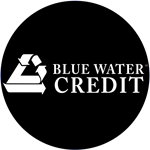
Additionally, there are millions of Americans that are considered “Credit Invisible,” and most young people that are just starting out haven’t built up a track record with debt, credit, and paying on time.
Fortunately, a fantastic resource exists to help them all: secured credit cards. No matter who you are, if you need more tradelines or an account in good standing on your credit report to help you improve your score – and open the gateway to getting bigger and better loans – a secured card is right for you. In fact, we highly recommend this secured credit card to our clients.
In this blog, we’ll cover the basic questions you may have about secured credit cards, and then our three important tips for getting one.
What is a secured credit card?
Secured cards are simply credit cards that work a little differently, requiring a deposit from the applicant. Since the consumer is funding the available balance of the card before he or she uses it, this creates a no-risk proposition for the lender, and therefore they can extend credit to people who otherwise would be denied.
How do secured credit cards work?
Most often, the deposit the consumer puts down to get the card is the same amount that’s extended to them on credit. But other than that, it works just like a normal credit card, and they can spend some, none, or all of the available balance. Of course, they’re required to make payments on the amount you borrow like any other credit card, which establishes a positive payment history when the card reports to the three credit bureaus.
How can a secured card help your credit score?
As far as credit reporting, there is little or no difference between a secured card and a normal credit card, so both show up as a tradeline and improve your score when managed correctly. The majority of secured credit cards report to TransUnion, Experian and Equifax just like normal credit cards, so it’s a valuable tool to build up or repair your credit score – without having to worry about being denied for a loan.
Which secured card is the best?
While applicants may easily get approved for a secured credit card, they would still be wise to choose carefully. Too often, consumers don’t read the fine print and end up with a secured card that charges exorbitant fees, high-interest charges, or doesn’t report to the credit bureaus at all, which could actually hurt their financial situation. As credit repair experts, we see all kinds of secured credit cards and know which ones are the best – and which are just wasting your time and money. Contact us if you’d like more advice and a couple of recommendations.
Now that you know the basics about secured credit cards, here are five tips for getting and using one:
- Funding the initial deposit:
Your ultimate goal probably isn’t just to get a secured credit card but to use it as a stepping stone to improving your credit and then qualifying for other debt, like a mortgage. Therefore, you should consider a card with a low deposit amount so you can easily fund your first card sooner than later. Secured cards with a deposit amount of $200-$300 are a great place to start, and there are plenty of ways to save up for that deposit or pay in installments so you can start on the road to an improved credit score immediately.
- Make sure it reports to the credit bureaus quickly:
If you’re getting a secured credit card specifically because you want the help it will bring on your credit score, make sure that it will report to the bureaus quickly. In fact, you want to get a secured card that both has an annual fee and reports that fee to the credit bureaus before you even get your card in the mail. This will allow the annual fee to report as an on-time payment to your credit report, helping you build positive credit history immediately (before you’ve even received and activated the card!)
While it may seem like a secured card with no annual fee is a good deal, in reality, it’s just delaying the reporting of the card by 4-6 weeks. (There won’t be any activity on the account to report to the credit bureaus until you pay your first monthly statement, which typically doesn’t arrive until 30 days after the card is opened.) The good news is that there are secured cards with an annual fee of $35 or less, with the annual fee immediately reported to the client’s credit report.
- Updating balances and payments:
You’ll also want to consider the reporting cycle for the card for balance and payment updates. Most cards work on a monthly reporting cycle, which means that regardless of when you make a payment or pay down a balance, your credit report will only be updated on their credit report at the end of the month. However, there are cards with weekly reporting cycles, so your account activity will be reported to the bureaus and update much more efficiently, ensuring that you see the benefit to your credit score.
***
Do you have more questions about secured credit cards? Check out why we highly recommend this secured credit card for our clients, and contact Blue Water Credit if you need more help!




